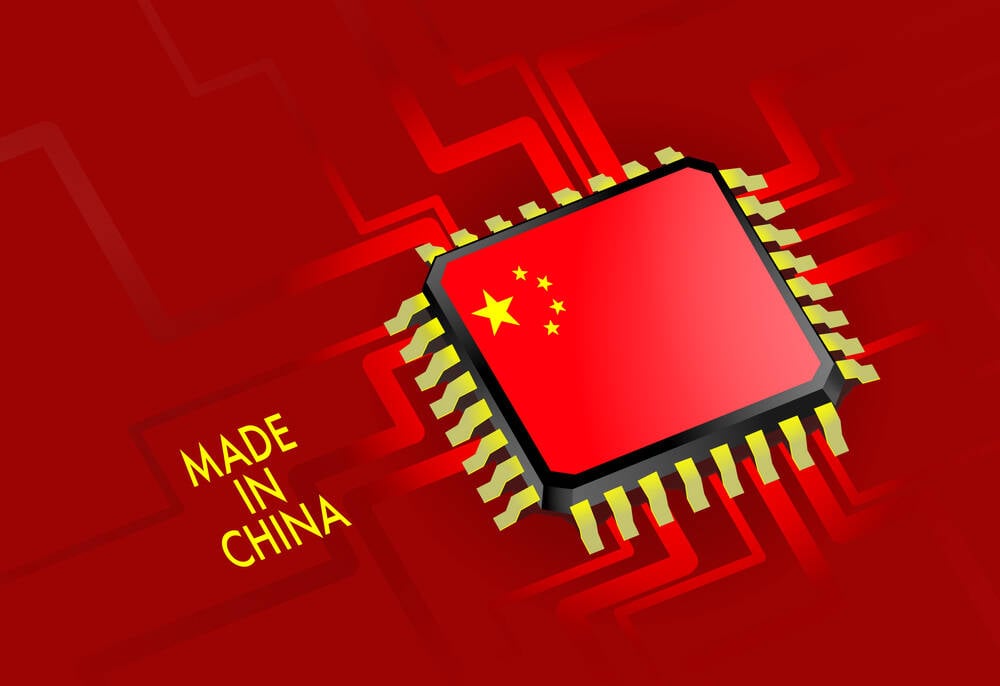China Plans To Toss Foreign-made PCs From Government Agencies 'in Two Years'

Authorities in China have reportedly directed government agencies and state-run companies to bin all personal computers made by foreign companies and replace them with homegrown hardware within two years.
According to Bloomberg, "people familiar with the plan" recounted how government staff were told upon returning from China's Labor Day holiday, which ran from April 30th through May 4th, they will have to toss foreign PCs.
Bloomberg's report claims that the yet-to-be-officially-published mandate could lead to the replacement of as many as 50 million PCs by the central government.
The leading PC maker in the APAC region last year, according to research firm IDC, was China-based Lenovo, with about 30 percent of the market. HP came in second, with 14.3 percent market share, followed closely by Dell with 14.1 percent market share.
Figures specific to the Chinese market from Canalys, covering Q2 2021, show Lenovo with a 40 percent market share.
Lenovo stock, coincidentally, was up about 4 percent on Friday, following the publication of the report from Bloomberg. The NASDAQ Composite during that period fell 1.4 percent.
The Register asked HP and Dell to comment but we've not heard back. We also asked Apple to comment because a predictably uncommunicative communications department is always good for a laugh.
We reached out to the Chinese Embassy in Washington, DC, which did not respond. The Commerce Department didn't immediately respond to a query either. A US State Department spokesperson did get back to us to say the agency has nothing to say on the subject.
Singing an old tune
This is not the first time reports of this sort have circulated. In December 2019, The Financial Times ran a similar story, "Beijing orders state offices to replace foreign PCs and software." At the time – amid the Trump administration's friction with China and ban on Huawei's telecom gear – the transition was to take three years, which is about where we are now.
Then there was the time in 2014 when, according to China's Xinhua news agency, China banned Windows 8 on government computers. That was a month after Microsoft ended support for Windows 8 and Chinese officials were said to concerns about the operating system's safety.
China has long wanted to wean itself from dependence on foreign technology providers. As far back as 1999, government officials hoped the homegrown Red Flag Linux would replace Windows. The software however proved unpopular and the project shut down in 2014.
- China's road to homegrown chip glory looks to be going for a RISC-V future
- SEC adds Tencent, JD.com, China Mobile to group facing potential delisting
- European tech businesses cool on China due to coronavirus lockdowns
- China finished 2021 with 4% global semiconductor market share
More or less since Edward Snowden leaked classified information in 2013 about the scope of global surveillance programs run by the US National Security Agency, talk of disentangling global supply chains for the sake of national security has picked up. During the Trump administration, trade conflict with China increased and sanctions against Chinese firms like Huawei complicated global tech transitions like the adoption of 5G networking technology.
Relations with China have not improved much under the Biden administration, which has enacted its own considerable set of trade restrictions, as documented by China Briefing.
And thanks to Russia's invasion of Ukraine and the ensuing sanctions imposed by the US, EU countries, and the UK, among others, Russia too has been forced to mandate locally made technology.
Even so, Scott Kennedy, senior advisor on Chinese business and economics at the Center for Strategic & International Studies, does not appear to find the report particularly troubling.
"This is at least the fourth or fifth time Beijing has 'ordered' replacement of foreign office equipment, only to later back down," he said via Twitter. "Unsure why this time will be different. Even if they swap in domestic brands, there'll still be lots of US & Western tech inside." ®
Gyrostat Capital Management: Why Risk Management Is Not About Predicting Risk
Why Risk Management is Not About Predicting Risk Financial markets reward confidence, but they punish certai... Read more
Gyrostat January Outlook: Calm At Multiyear Extremes
This monthly Gyrostat Risk-Managed Market Outlook does not attempt to forecast market direction. Its p... Read more
Gyrostat December Outlook: The Market Does The Work
Harnessing Natural Volatility for Consistent Returns Markets have always moved more th... Read more
Gyrostat Capital Management: Why Advisers Must Scenario-Plan Both The Bubble And The Bust
The Blind Spot: Why Advisers Must Scenario-Plan Both The Bubble and The Bust In financial m... Read more
Gyrostat Capital Management: The Hidden Architecture Of Consequences
When Structures Themselves Become A Risk In portfolio construction, risk is rarely where we look for it.... Read more
Gyrostat November Outlook: The Rising Cost Of Doing Nothing
Through the second half of 2025, markets have delivered a curious mix of surface tranquillity and instabi... Read more

